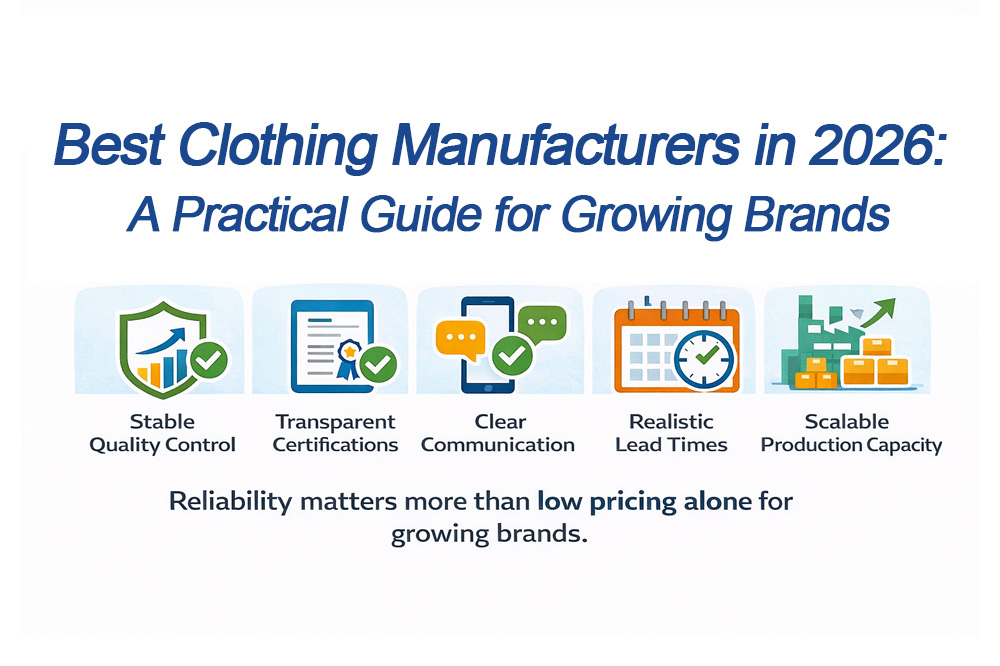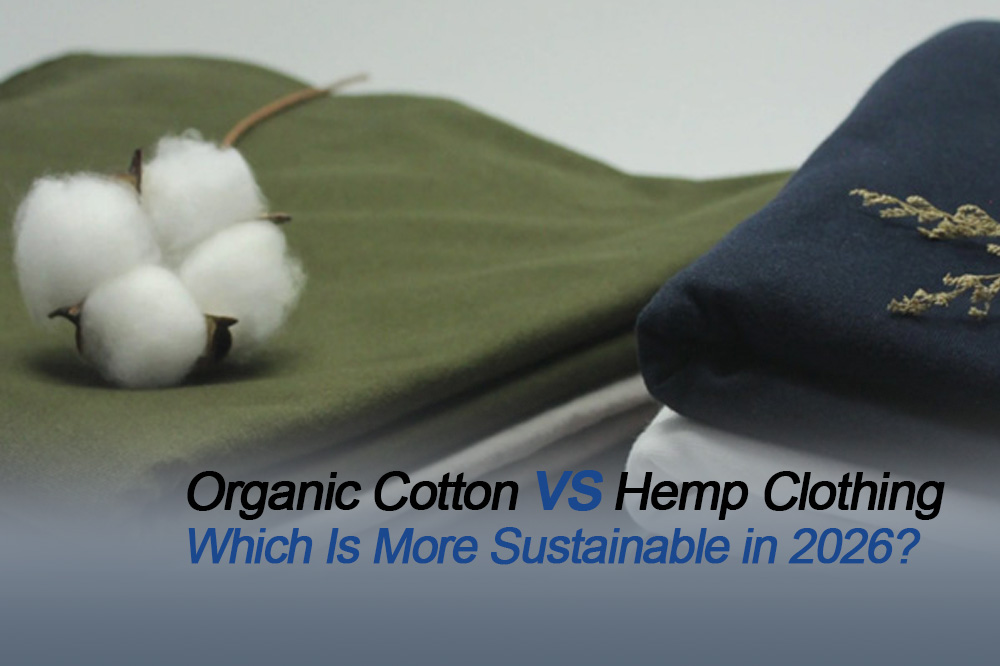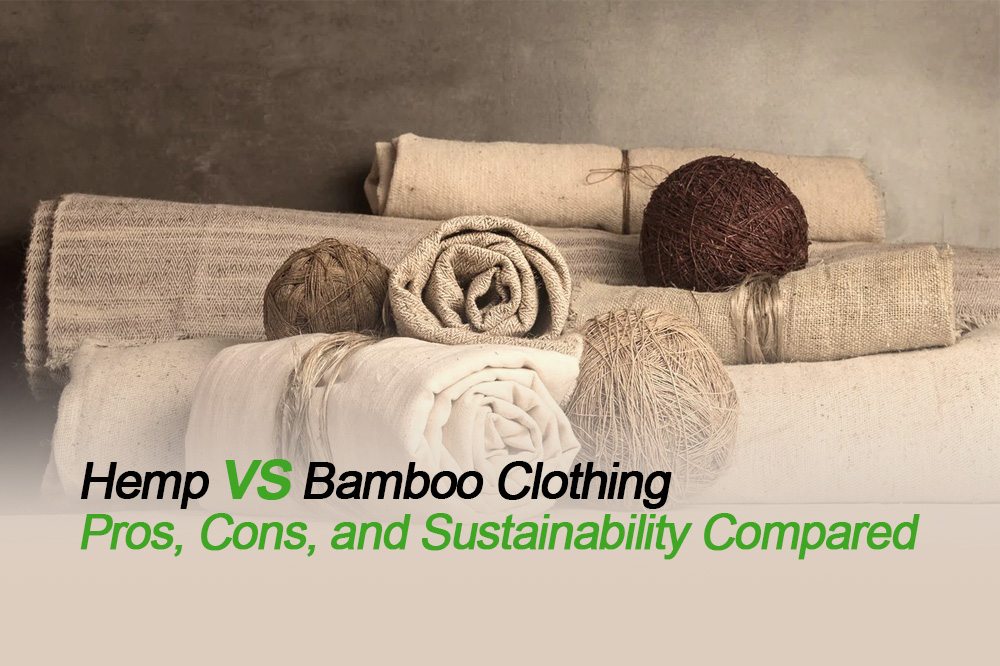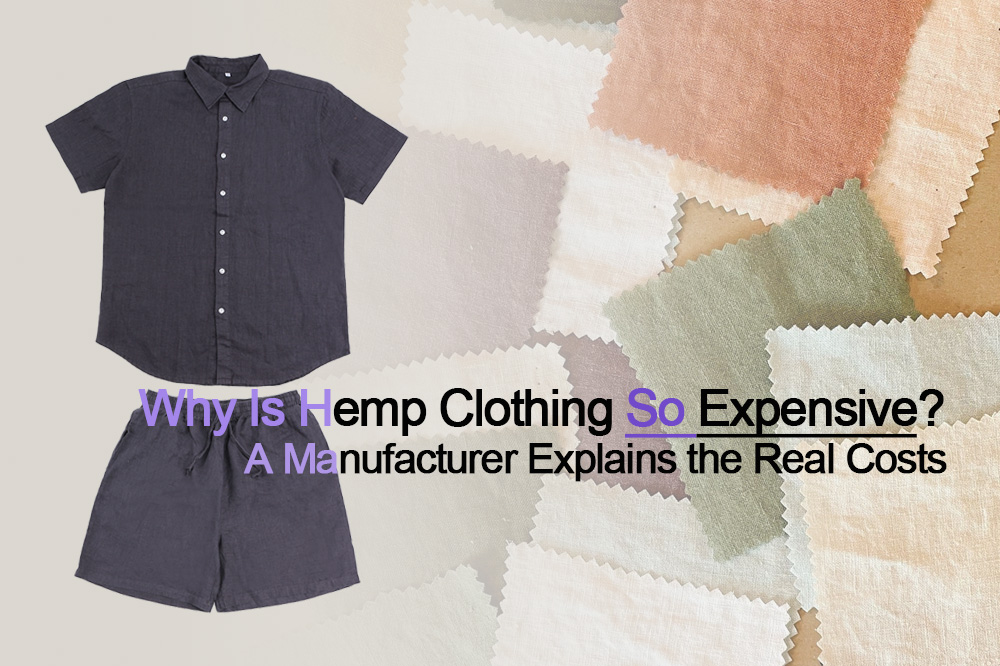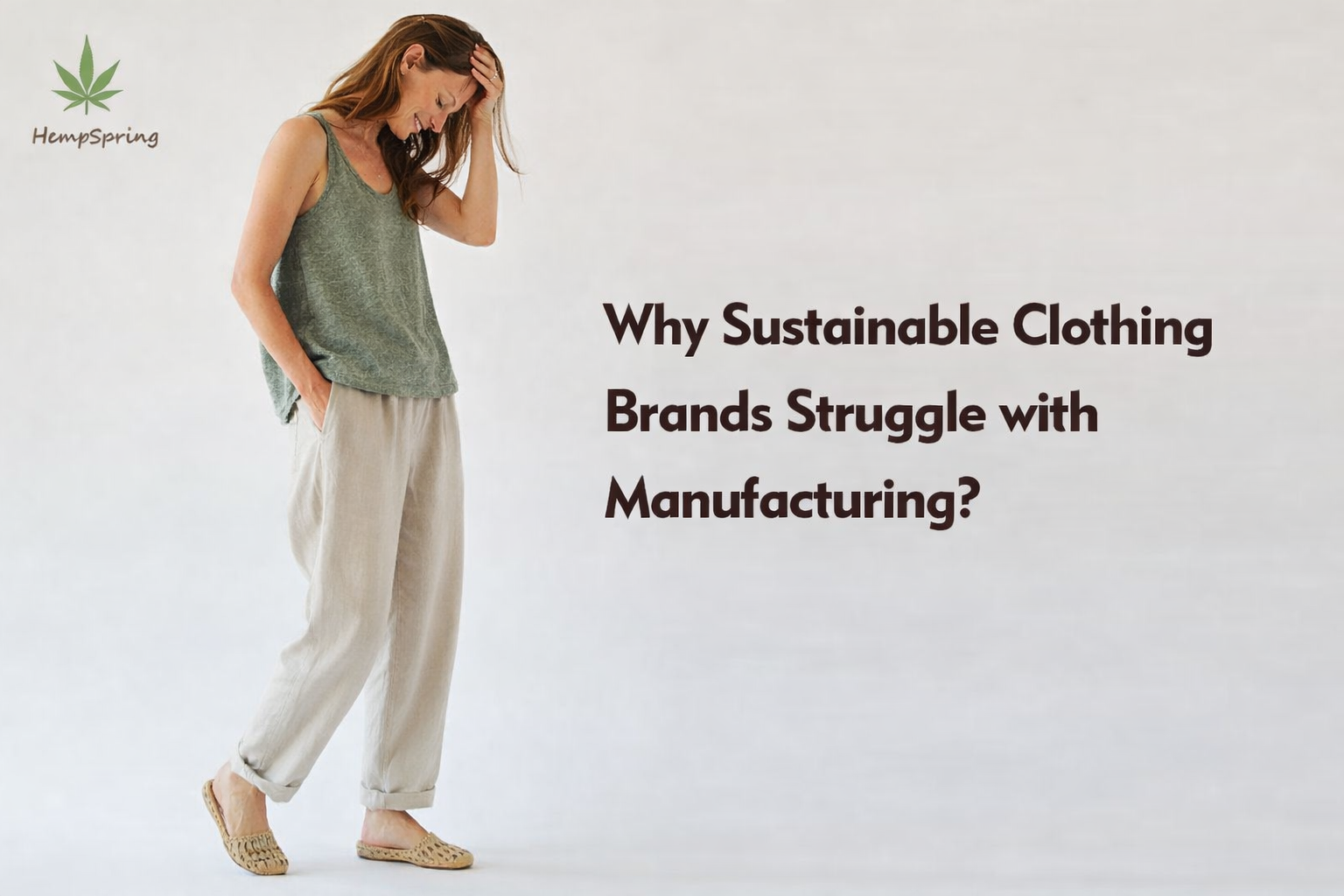
In recent years, sustainability has become a hot topic in many industries, including fashion. As a clothing brand founder, it’s crucial to partner with a sustainable manufacturer. But why is this so important? In this article, we’ll explore why you should consider a sustainable clothing manufacturer and how it can benefit your brand and the planet.
Sustainable clothing manufacturing helps reduce environmental impact, improve social conditions, and promote ethical practices. By working with a sustainable manufacturer, you contribute to eco-friendly processes, use organic materials, and support ethical labor standards, aligning your brand with growing consumer demand for responsible fashion.
Let's dive deeper into why choosing a sustainable clothing manufacturer is so important for your business and the planet.
What is the difference between green and sustainable manufacturing?
Understanding the difference between green and sustainable manufacturing is key to choosing the right partner for your brand.
Green manufacturing focuses on reducing environmental harm through practices like energy efficiency, while sustainable manufacturing considers the environment, social responsibility, and economic growth, ensuring long-term impact.

Green manufacturing is often seen as an environmentally conscious approach, aimed at reducing waste and energy consumption in the production process. However, sustainable manufacturing takes a broader approach, considering not just the environmental impact but also the social and economic factors.
Green Manufacturing
Green manufacturing focuses on minimizing the negative impact on the environment during production. This can include efforts like using renewable energy sources, reducing carbon footprints, and recycling materials. It’s a good first step, but it only addresses one part of the sustainability equation.
Sustainable Manufacturing
Sustainable manufacturing goes beyond just environmental concerns. It includes ethical labor practices, fair wages, and ensuring the long-term health of the environment and community. It’s a holistic approach that considers the entire lifecycle of a product, from sourcing materials to waste management.
The biggest difference is that sustainable manufacturing looks at the bigger picture, ensuring that manufacturing processes are not only environmentally friendly but also socially and economically responsible.
What is the importance of sustainability in the clothing industry?
Sustainability in the clothing industry has become increasingly important due to environmental and ethical concerns.
Sustainability in the clothing industry helps reduce waste, conserve resources, and support fair working conditions. Consumers are more aware of the environmental impact, and brands that prioritize sustainability attract a loyal customer base.
The clothing industry is one of the largest contributors to environmental damage, including high water consumption, waste, and pollution. By adopting sustainable practices, manufacturers can significantly reduce their environmental footprint.
Resource Conservation
Sustainable manufacturing uses eco-friendly materials like organic cotton, bamboo, and hemp, which require less water and chemicals to produce. These materials are also biodegradable, reducing waste and pollution.
Ethical Labor Practices
Sustainability also includes ensuring fair wages, safe working conditions, and ethical labor practices. Brands that support sustainable manufacturers demonstrate their commitment to human rights, which is important to many consumers.
As consumers become more educated about the negative impacts of fast fashion, they are increasingly seeking out brands that prioritize sustainability. Partnering with a sustainable manufacturer shows your customers that you are committed to making a positive impact on the environment and society.
What are the three pillars of sustainability?
Sustainability is built on three core pillars: environmental, social, and economic.
The three pillars of sustainability – environmental protection, social equity, and economic viability – ensure that a manufacturer operates responsibly and sustainably across all areas of production.
Sustainability isn't just a buzzword; it's a framework built on three key principles: environmental protection, social equity, and economic viability. These pillars ensure that every aspect of production is considered from a holistic viewpoint.
Environmental Protection
This pillar focuses on reducing negative environmental impacts, such as pollution, waste, and overconsumption of resources. Sustainable manufacturers work to minimize their carbon footprint, use renewable resources, and recycle materials.
Social Equity
Social sustainability involves ensuring fair wages, safe working conditions, and the protection of workers' rights. It emphasizes respect for people and communities involved in the manufacturing process.
Economic Viability
Economic sustainability means ensuring that the business model is profitable and can support long-term growth without harming the environment or society. It’s about balancing profitability with responsible practices.
Each pillar is interconnected, and a sustainable manufacturer must consider all three to truly make a positive impact.
What is the need for sustainable fashion?
Sustainable fashion is more than just a trend – it's a necessity for the future of the planet.
The need for sustainable fashion arises from the growing environmental crisis. By using eco-friendly materials and ethical production processes, we can reduce waste, minimize pollution, and create a fashion industry that benefits both people and the planet.
The fashion industry has long been criticized for its significant environmental impact. From water-intensive cotton farming to the pollution caused by synthetic fabrics, the need for sustainable fashion has never been greater.
Environmental Crisis
The fashion industry is responsible for a large portion of global pollution and waste. By adopting sustainable practices, manufacturers can reduce the use of harmful chemicals, conserve water, and reduce waste in landfills.
Consumer Demand
As awareness of the environmental and ethical issues grows, consumers are demanding more sustainable fashion choices. Brands that prioritize sustainability are not only attracting environmentally conscious consumers but also positioning themselves for long-term success.
Sustainable fashion is no longer optional – it's a critical step toward a healthier planet.
Conclusion
Choosing a sustainable clothing manufacturer helps reduce environmental harm, promotes ethical practices, and ensures the long-term viability of your brand. Partnering with a responsible manufacturer is the future of fashion.

